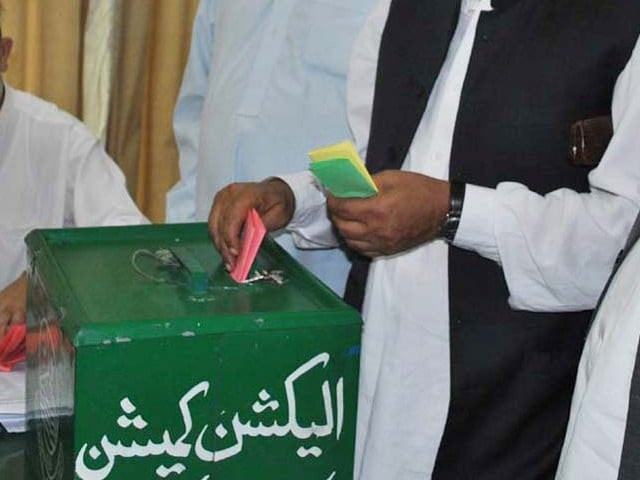An independent ECP
The apex court is more powerful now so to have it throw its weight behind the ECP is reassuring.

File photo of a voter casting his vote. PHOTO: SANA/ FILE

Allowing the ECP to operate independently becomes even more important once the assemblies are dissolved on March 16 and a caretaker government takes over. If, as some reports suggest, the caretaker set-up includes those who are suspected of fealty to the military, the ECP’s ability to hold free and fair elections will be under threat. It is important that the line in the sand is already drawn and that it is the Supreme Court which has done so, is a good omen for the elections. The apex court is more powerful now than it has ever been before so to have it throw its weight behind the ECP is reassuring.
Since the holding of elections after a democratic government completes its term is unprecedented in Pakistan’s history, there is a tendency to see bogeymen which may not even exist. However, given our past, it is far preferable to be pessimistic and give the ECP whatever power it needs to ensure elections are held on time and without outside interference. Already, the ECP has intervened when it thought the government was spending development funds inappropriately and tried to stop the transfer and hiring of government employees. It will have to become even more stringent once a caretaker set-up, which may have no commitment to democracy, assumes power. The last thing we need is a prolonged caretaker government and the ECP and Supreme Court combine will have to work against that.
Published in The Express Tribune, March 14th, 2013.















COMMENTS
Comments are moderated and generally will be posted if they are on-topic and not abusive.
For more information, please see our Comments FAQ